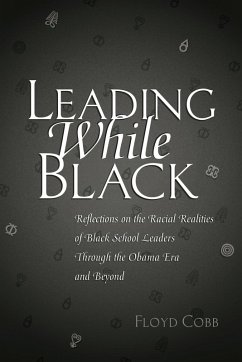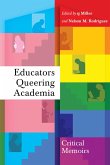What does it mean to lead while Black in America? How do Black educators lead for equity to ensure a quality academic experience for Black children when calls for equality are routinely discredited in our post-racial context? Through this book, Floyd Cobb passionately and honestly draws from his personal and professional experiences to describe his path to accepting the harsh realities of being an equity-minded Black leader in K-12 schools. Offered through the performance of autoethnography, Cobb highlights and gives voice to the often-unacknowledged vulnerability of equity-minded Black leaders who work in suburban contexts. Using the era of the Obama presidency as the backdrop for this work, Cobb illuminates the challenges and complexities of advocating for marginalized children who come from a shared racial heritage in a society that far too often are reluctant to accept such efforts. Through Leading While Black, emerging and aspiring Black leaders will be reminded that they are not alone in their struggles, but must nonetheless persist if we are to do our part in making education a better experience for our children.
Dieser Download kann aus rechtlichen Gründen nur mit Rechnungsadresse in A, D ausgeliefert werden.
"It is important to understand that Black leadership in North America has always been situated within a racialized context. Fanny Jackson Coppin, Mary McLeod Bethune, Carter G. Woodson, and Stokely Carmichael were all educational leaders critiqued and criticized by white society for their progressive efforts and initiatives to eradicate economic, political, and educational oppression among African Americans. Leading While Black: Reflections on the Racial Realities of Black School Leaders Through the Obama Era and Beyond takes up the complex work of Black leadership for educational equity by using riveting personal narrative to deconstruct inherent tensions and challenges. Floyd Cobb answers important questions such as 'How does the Black experience make our leadership challenges unique?' and 'What are ways to successfully engage in this transformational work in Black bodies that are deliberately and subconsciously profiled in practically every sphere of American life?'. Cobb also presents a framework demonstrating important relationships between equity-mindedness, racial battle fatigue, and racial realism that advances what we know about equity work pathways to naïve hope or committed struggle. This book immediately hooks the reader through personal story, but a complex structural analysis exudes and Cobb ends with inspiration and expectancy for Black leaders in the struggle for educational equity. This book is a must read!"-Nicole M. Joseph, Teaching and Learning, Vanderbilt University









